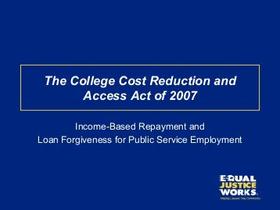How to Pay for Community College as a Single Parent
Life as a single parent is challenging enough without the added burden of going to school. If you’re already shouldering a load of parenthood by yourself, you’re probably hesitant to add more to your plate. Furthering your education, however, could provide opportunities both for yourself and for your children that could change your lives for the better.
Getting a degree can open doors for you, but it does come with its challenges, and many of those challenges are financial. Raising a child is expensive, and so is going to school! Student loans are available for single parents, but they may not be the best option.
In this article, we’ll explore the benefits of community college, particularly for single parents, and we’ll provide some tips for making it more affordable.
The Benefits of Community College for Single Parents
Whether you’re starting college for the first time or continuing your education, community college provides many unique benefits over traditional 4-year schools, especially for single parents.
The way community colleges are structured is much more flexible than the typical college or university. Many community colleges offer both in-class and online courses with tuition prices that are much lower than traditional schools. Classes are offered both during the day and in the evening, making it easier for busy single parents to find a class schedule that fits their lifestyle. Plus, this flexibility enables single parents to keep working while attending college.
Another benefit of community college for single parents is that you can customize every aspect of your experience. You have the option of living at home to save money (and to avoid interrupting your family's living situation), and you can take classes when it’s convenient for you. Extracurricular activities are available if you are interested, and most community colleges have the same kind of support services you would find at a 4-year school.
In terms of programs, many community colleges offer accelerated degree programs so you can maximize your time and obtain your degree faster than may be possible at a liberal arts school or another traditional college or university.
How to Make Community College More Affordable
The benefits of community college for single parents are undeniable, but every student’s experience is unique. College is what you make of it, whether you attend community college or a 4-year university. One of the biggest concerns for single parents is being able to afford higher education without negatively impacting their children.
According to research from the Institute for Women’s Policy Research, only 8% of single mothers enrolled in Associate’s and Bachelor’s degree programs at community colleges graduate within six years. Finding the time to attend class and complete classwork is undoubtedly a challenge, but for many of these women, the financial burden of attending college is too high. In fact, research from the same institute shows that the median student debt for student parents is twice as high as for students who do not have any children.
Here are ten things you can do to make college more affordable as a single parent:
- Fill out the FAFSA. Every year, when you plan to attend classes, you should fill out the Free Application for Federal Student Aid (FAFSA). This is required if you want to qualify for federal aid in the form of grants, loans, and scholarships, and it is based on income and living expenses.
- Contact the school directly. Many community colleges have financial assistance programs, but you may not hear about them unless you ask. If finances are a burden that might prevent you from attending school, the college may be able to provide some need-based aid to offset tuition costs. At the very least, you may be able to create an affordable payment plan for tuition.
- Apply for federal Pell Grants. These grants are need-based and open to all students who meet certain income requirements. Having dependents is weighted very heavily in the equation used to determine need so that single parents may qualify for larger grants than traditional students.
- Look for state-level grants. Many states offer free tuition assistance for both low-income students and single-parent students. Some of the states with the most options include Arkansas, Iowa, Florida, Illinois, Minnesota, Kansas, and Wisconsin.
- Apply for private scholarships and grants. Whether you qualify for federal or state-level aid or not, you should also apply for private scholarships and grants. Many private foundations (like the Single Parents Alliance of America) offer merit-based scholarships for single parents.
- Expand your search for assistance. There are plenty of tuition assistance programs available for single parents, but that should not be the only criteria you use in your search. Think about your hobbies, talents, interests, ethnicity, religion, and anything else that might qualify you to apply for a scholarship or grant.
- Child Care Access Means Parents in School Program. This federal grant program is awarded to colleges to enable them to provide on-campus childcare, so you may want to look for community colleges that have received this grant. Keep in mind that you may need to put yourself on a weight list and meet certain eligibility requirements.
- Borrow or share your textbooks. No one wants to pay full price for an expensive textbook that you’ll only use for one class, so ask around with other students to see if you can borrow or share the cost of a book with another student.
- Look for work-study jobs or take a part-time job. Though work-study jobs may not pay particularly well, every little bit helps, and having an on-campus job may be more convenient than looking for a job anywhere else.
- Save up with a 529 plan. If attending college isn’t affordable right now, start a 529 plan and start saving for the future. This tax-advantaged plan allows you to put away money toward future college expenses. Even if you don’t use it yourself, it’s good to start one for your kids.
When searching for scholarships and grants, it can take time to dig through the options. Many scholarships and grants have specific eligibility requirements, so make sure you meet those requirements before you apply. It can be a time-consuming process, but the potential reward is worth it when it comes to offsetting your costs as a single-parent student.
This video offers some ideas for finding funding for college as a single parent.
Tips for Finding Affordable Childcare
Being able to create a class schedule that works for you as a single parent is great, but what do you do with your children while you’re in class? Childcare is expensive, but there are some things you can do to make it more affordable.
Here are some tips for finding affordable childcare as a single parent:
- See if the school offers a childcare grant. Some schools, like Wake Tech Community College, offer single parents a grant of $650 per month to cover childcare expenses.
- Look into on-campus childcare services. Many community colleges offer on-campus childcare services, sometimes at a reduced cost for single parents. You’ll never know what options might be available unless you ask.
- Contact local community centers and childcare facilities. You may be surprised to find just how willing these facilities are to work with you if you ask. Many programs offer reduced-cost childcare for families in need or may be able to refer you to another facility that does.
- Network with other single parents. If you’re struggling to find affordable care as a single-parent student, you’re probably not alone. Reach out to other single parents in the area and see if you can create some childcare exchange.
- Reach out to other students. College students are always on the lookout for ways to make money, so you may be able to find another student at your school willing to provide childcare at a price that is affordable for you.
- Take out extra federal loans. If you fill out the FAFSA each year, you’ll see precisely how much aid you qualify for. If you have no other options, you can always take out more than you need to cover your tuition and use it for childcare.
Furthering your education could be the stepping stone that takes you and your family to the next big thing in life. Don’t let the costs of attending college hold you back from achieving your goals. Take advantage of local, state, and federal aid programs and take the time to research the options to make sure you get as much aid as possible.
As a single parent, you have to rely on yourself more than anyone. If you want to change your life, the only one who can make it happen is you. Use what you’ve learned here to find assistance that will make it financially possible for you to obtain your degree. Good luck!
Questions? Contact us on Facebook or Instagram. @communitycollegereview
#communitycolleges #payingforcollege















